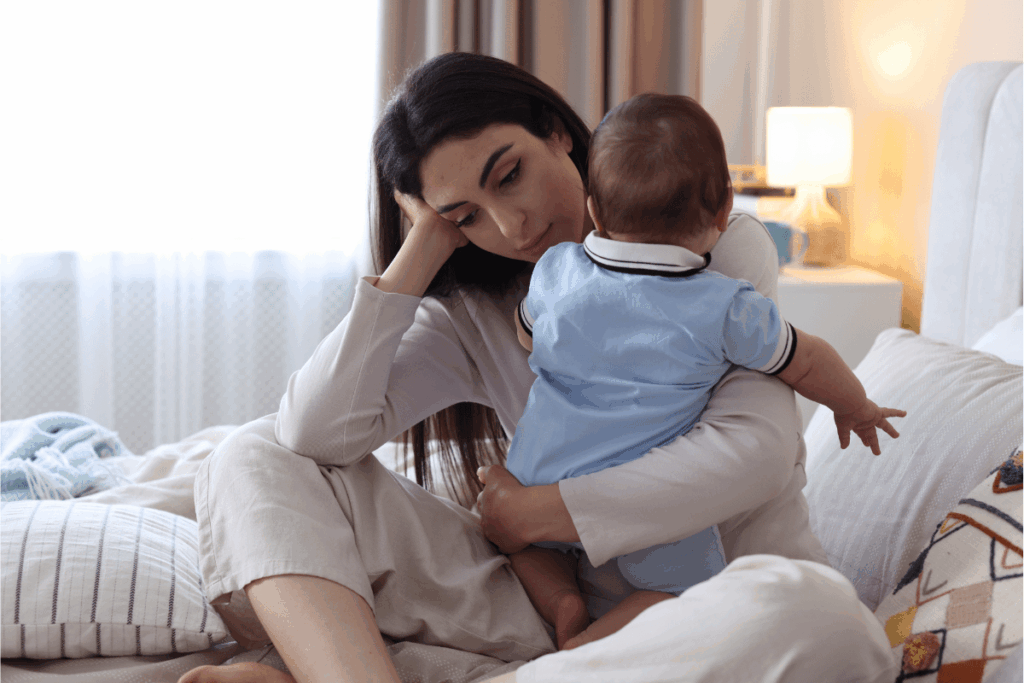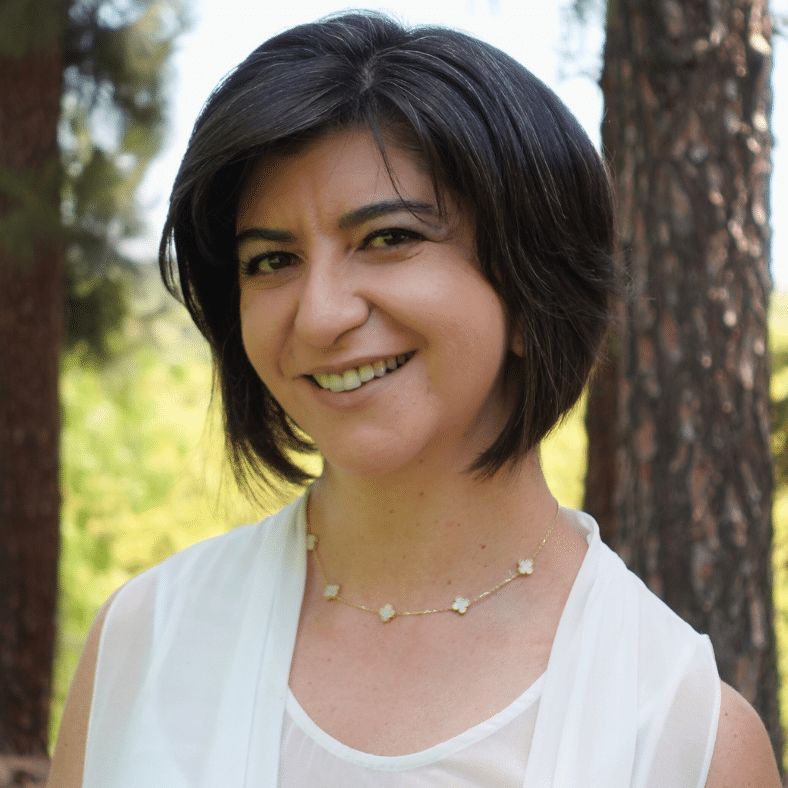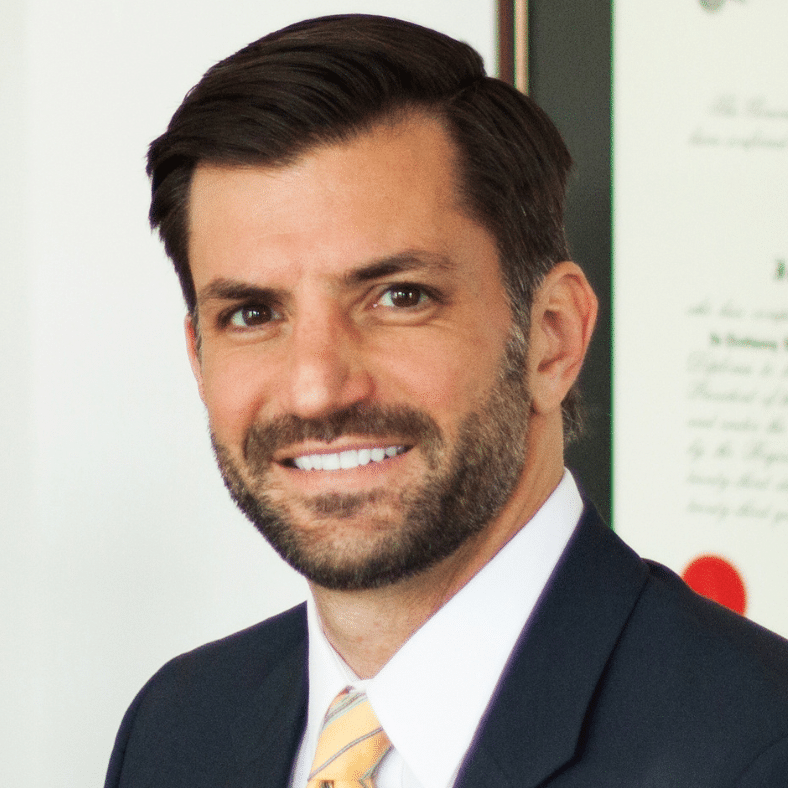Postpartum Depression Treatment in Los Angeles
Struggling with depression can feel isolating and overwhelming, affecting every aspect of life. You’re not alone—support is available.
Contact us today to begin therapy and find your path to recovery.
Call Us when you Need Help!
Postpartum depression (PPD) affects roughly 1 in 7 women and can make the transition into motherhood overwhelming and distressing. If you or a loved one is struggling with postpartum depression, you are not alone—help is available.
At The Meadowglade, we provide compassionate, evidence-based treatment in Los Angeles for postpartum depression to help mothers regain their well-being.
If you or a loved one are struggling, learn more about our Los Angeles depression treatment programs by verifying your insurance or calling us at (888)272-2062.
What is Postpartum Depression?
Postpartum depression is a serious mental disorder that calls under mood disorders that can develop after childbirth, affecting a mother’s ability to care for herself and her baby. Unlike the “baby blues,” which include mild mood swings and emotional sensitivity, PPD is more intense and lasts longer, almost always requiring professional treatment.
PPD is not a sign of weakness or failure as a parent—it is a real, biologically driven mental health condition that can affect any mother, regardless of her background or circumstances. Early recognition and treatment are crucial for long-term recovery.
Signs and Symptoms of Postpartum Depression
Symptoms of postpartum depression can vary in intensity and may appear within weeks of childbirth or develop gradually over the first year. If these symptoms interfere with daily life or persist for more than two weeks, it’s important to seek professional help.
Common signs include:
- Persistent sadness, hopelessness, or emptiness
- Severe fatigue or lack of energy
- Difficulty bonding with the baby
- Loss of interest in activities once enjoyed
- Frequent crying spells
- Intense irritability or anger
- Changes in appetite (overeating or loss of appetite)
- Difficulty sleeping—even when the baby sleeps
- Feelings of worthlessness or guilt
- Intrusive thoughts of harming oneself or the baby
You Are Not Alone. You Deserve To Get Help.
The Meadowglade is an industry leader in mental health treatment. Our team of top medical experts specialize in dual diagnosis treatment and are committed to ensuring that each patient is treated as an individual. Call us today, we’re available 24/7.
Causes of Postpartum Depression
Some common causes include:
- Hormonal Changes: After childbirth, estrogen and progesterone levels drop sharply, potentially triggering mood instability and depressive symptoms.
- Sleep Deprivation: Newborn care is exhausting, and a lack of quality sleep can increase emotional distress and make it difficult to regulate mood.
- Emotional and Psychological Factors: New mothers often experience pressure to be perfect, leading to self-doubt, anxiety, and isolation—all of which can contribute to postpartum depression.
- History of Depression or Anxiety: Women with a personal or family history of depression, anxiety, or other mood disorders are at a higher risk of developing PPD.
- Lack of Support: A strong support system plays a crucial role in mental health. A lack of emotional, financial, or physical support can make the transition into motherhood more difficult.

Postpartum Depression Treatment Programs in Los Angeles
At The Meadowglade, we recognize the unique challenges that postpartum depression presents. Our evidence-based treatment programs offer individualized care to help mothers regain their mental and emotional well-being in a compassionate and supportive environment.
Residential Treatment
For mothers experiencing severe postpartum depression, our residential treatment program provides 24/7 support in a structured, therapeutic setting.
This level of care offers:
- Intensive individual, group, and family therapy
- Holistic wellness practices
- Medication management (if needed)
- Nutritional guidance and lifestyle support
Partial Hospitalization Program (PHP)
Our PHP program offers a structured and intensive treatment schedule during the day while allowing mothers to return home in the evenings. PHP is ideal for those who require comprehensive care but do not need 24-hour supervision.
Intensive Outpatient Program (IOP)
For mothers who need ongoing therapy and support while balancing family and work responsibilities, our IOP program provides:
- Flexible scheduling (daytime or evening sessions)
- Weekly individual and group therapy
- Mindfulness and stress-management techniques
Outpatient Treatment
Our outpatient treatment program is designed for mothers who have completed higher levels of care but still benefit from consistent therapeutic support. This program includes regular therapy sessions with a focus on maintaining long-term recovery.
Supportive Housing
For mothers who need a stable and structured living environment while receiving treatment, our supportive housing program offers a safe space for healing and additional access to therapeutic resources.
Aftercare
Recovery from postpartum depression does not end with treatment. Our aftercare program provides ongoing support, including:
- Continued therapy sessions
- Support groups and community resources
- Relapse prevention strategies
At The Meadowglade, we tailor every treatment plan to meet the individual needs of mothers at different stages of their healing journey.
How is Postpartum Depression Treated?
At The Meadowglade, we offer evidence-based and holistic treatments to help women heal from postpartum depression.
Our approach includes a combination of therapeutic modalities, lifestyle support, and medication management when needed. We tailor treatment plans to each mother’s unique journey, ensuring they receive the care, guidance, and support needed for a full recovery.
Cognitive-Behavioral Therapy (CBT)
Cognitive-Behavioral Therapy is a highly effective, evidence-based treatment for postpartum depression. It helps mothers recognize and reframe negative thought patterns that contribute to feelings of sadness, guilt, or hopelessness.
Through structured sessions, mothers learn practical coping strategies to manage stress, regulate emotions, and develop healthier perspectives on motherhood and self-worth. CBT empowers women to break free from self-defeating beliefs and build resilience in their recovery journey.
Dialectical Behavior Therapy (DBT)
Dialectical Behavior Therapy is particularly beneficial for mothers struggling with intense emotions, anxiety, or self-doubt after childbirth.
This therapy focuses on mindfulness, distress tolerance, emotional regulation, and interpersonal effectiveness, helping mothers stay present and manage overwhelming feelings. DBT teaches practical techniques to reduce stress and prevent emotional outbursts, promoting greater emotional stability. By improving self-awareness and coping skills, mothers can enhance their overall well-being and strengthen relationships with their baby and loved ones.
Education & Career Counseling
Postpartum depression can affect a mother’s confidence, sense of identity, and long-term goals, making it difficult to navigate career and educational aspirations.
Education and career counseling helps mothers explore opportunities that align with their strengths, interests, and life circumstances. This therapy provides guidance on work-life balance, job-related stress, and personal growth, empowering mothers to set realistic goals for their future. By building self-esteem and offering practical support, this service helps women regain a sense of purpose and fulfillment beyond motherhood.
EMDR Therapy
Eye Movement Desensitization and Reprocessing (EMDR) therapy is an effective method for addressing traumatic experiences that may contribute to postpartum depression.
Many mothers experience unresolved emotions related to childbirth, past trauma, or unexpected challenges in motherhood. EMDR works by guiding individuals through structured eye movements that help reprocess distressing memories, reducing their emotional intensity. This therapy allows mothers to release past pain and gain a sense of control over their mental and emotional well-being.
Family Therapy
Postpartum depression impacts the entire family, often straining relationships between mothers, partners, and loved ones.
Family therapy provides a safe space for open communication, helping partners and relatives better understand the emotional and psychological challenges of PPD. By addressing misunderstandings, improving communication, and developing supportive strategies, family therapy strengthens familial bonds and creates a healthier home environment. This type of therapy is essential in helping mothers feel seen, understood, and supported throughout their recovery.
Holistic Therapy
Holistic therapy takes a whole-person approach to treating postpartum depression, addressing the mind, body, and spirit. Through practices such as yoga, meditation, breathwork, and nutrition counseling, mothers can improve their mental health naturally.
These therapies help reduce stress, promote relaxation, and enhance emotional balance, supporting recovery alongside traditional therapy. By incorporating holistic treatments, mothers can develop sustainable self-care habits that foster long-term well-being.
Stress Reduction Therapy
Stress reduction therapy focuses on helping mothers manage daily stressors that contribute to postpartum depression. This therapy includes relaxation techniques, deep breathing exercises, and guided mindfulness practices that help mothers feel more in control of their emotions.
By learning how to recognize and reduce stress triggers, mothers can develop healthier coping mechanisms. Stress reduction therapy provides lasting tools that support emotional stability and overall wellness.
Psychiatry & Medication Management
For some mothers, medication may be a necessary part of postpartum depression treatment, particularly when symptoms are severe. Our medical team provides comprehensive psychiatric evaluations and medication management to ensure safe and effective treatment. If antidepressants or other medications are recommended, our team closely monitors progress and adjusts treatment as needed. Medication management is integrated with therapy to provide a balanced, personalized approach to recovery.
Why Choose The Meadowglade?
At The Meadowglade, we are committed to helping mothers heal in a compassionate, supportive, and private setting. Our approach to postpartum depression treatment is unique because:
- We offer individualized care tailored to each mother’s needs
- Our expert team specializes in postpartum mental health
- We incorporate holistic therapies alongside evidence-based treatments
- Our serene Los Angeles setting promotes healing and wellness
You don’t have to navigate postpartum depression alone. We are here to help.
Begin Postpartum Depression Treatment in Los Angeles Today
If you or a loved one is struggling with postpartum depression, help is available. At The Meadowglade, we offer specialized treatment programs to support mothers through this challenging time.
Contact us today to learn more about our postpartum depression treatment programs and start your journey to recovery.
Our Mental Health Specialists
At The Meadowglade, our team of compassionate and experienced mental health professionals is dedicated to providing comprehensive mental health treatment in Los Angeles. Our multidisciplinary team works collaboratively to offer personalized care tailored to each individual’s needs.

Narine Babikian, MHA
Narine leads our mental health facility, overseeing all operations…

Joseph Gulino, MD
Dr. Gulino is a board-certified psychiatrist specializing in mental health treatment…

Yj Kim, MD
Dr. Kim offers expert psychiatric services at The Meadowglade…
Mental Health Programs
Take A Free Self-Quiz

Yj Kim, MD
Psychiatrist

Haroon Burhanullah, MD
Psychiatrist

Narine Babikian, MHA
Executive Director

Joseph Gulino, MD
Psychiatrist
Table of Contents
Begin Your Journey with Mental Health Treatment in Los Angeles Today
At The Meadowglade, we help you navigate through mental health challenges so that you are able to live a healthy,
happy life.
Click our phone number to call us, or simply request a callback.
6446 Meadowglade Dr, Moorpark, CA 93021







